Monday, the United Nations Security Council adopted a new resolution with a vote of 14-0, calling for an immediate humanitarian ceasefire in Gaza during the remaining period of Ramadan. Ramadan ends on April 9th.
The resolution has the goal of leading to a “lasting” and sustainable ceasefire. This resolution, notably different from a previously vetoed US-sponsored proposal, calls for the unconditional release of all hostages and has a focus on securing the flow of humanitarian aid throughout the Gaza Strip. But one item does not fall contingent on the other. These two items run in parallel, making it tough to ensure that the hostages will come home. These two requests are meant to happen simultaneously as opposed to one request pushing the other.
Unlike the US proposal, which tied the ceasefire to the complete release of hostages, this resolution independently addresses the ceasefire and hostage release without directly condemning Hamas for the events of October 7. Instead, it broadly condemns all acts of terrorism. The United States abstained from the vote, marking a significant moment. The U.S. refrained from vetoing the resolution, which would have been a display of support for Israel.
Netanyahu’s office put out a statement saying:
“Regrettably, the United States did not veto the new resolution, which calls for a ceasefire that is not contingent on the release of hostages.
This constitutes a clear departure from the consistent US position in the Security Council since the beginning of the war.
Today’s resolution gives Hamas hope that international pressure will force Israel to accept a ceasefire without the release of our hostages, thus harming both the war effort and the effort to release the hostages.
Prime Minister Netanyahu made it clear last night that should the US depart from its principled policy and not veto this harmful resolution, he will cancel the Israeli delegation’s visit to the United States. In light of the change in the US position, PM Netanyahu decided that the delegation will remain in Israel.”
After the vote was finished, U.S. Ambassador to the UN Linda Thomas-Greenfield said that “Certain key edits were ignored, including our request to add a condemnation of Hamas. We did not agree on everything in the resolution. For that reason, we were not able to vote ‘yes.’”
“But we fully support some of the critical objectives in this non-binding resolution and we believe it was important for the council to speak out and make clear that any cease-fire must come with the release of hostages.”
White House Spokesperson John Kirby said “Our vote does not represent a shift in our policy.”
Kirby also noted he was “looking forward to having an opportunity to speak to an Israeli delegation later this week” about “exploring alternatives to a major ground offensive in Rafah. He said “I’ll let the Israelis speak to whether they’re coming or not.”
Kirby also discussed the fact that Israel’s defense Minister Gallant is in town in the U.S. and will meet with Secretary [of State] Blinken and [National Security Adviser] Jake [Sullivan] and Secretary [of Defense] Austin. He says he has no doubt that in those discussions they will have ample opportunities to talk about planning for a Rafa ground invasion, as well as what’s going on inside negotiations.
Since this UN resolution is non-binding, it does not actually force any member state to take action. It’s meant to give the country an understanding of the international community’s sentiments. It’s supposed to be persuasive, but not legally binding.
Israel has responded critically to the resolution and the US’s decision to abstain. Israel officially made the decision to cancel the planned trip of its delegation to the United States, where they were expected to engage in further discussions this week.
U.S. Ambassador to the United Nations Linda Thomas-Greenfield addressed the Security Council after the vote.
She said “We’re getting closer to an immediate ceasefire with the release of all hostages, but we’re not there yet. Now, let’s be clear. A ceasefire could have come about months ago if Hamas had been willing to release hostages months ago. Instead, Hamas continues to stand in the way of peace to throw up roadblocks, cower in tunnels beneath Gaza cities and under civilian infrastructure, and hide among the civilian population.”

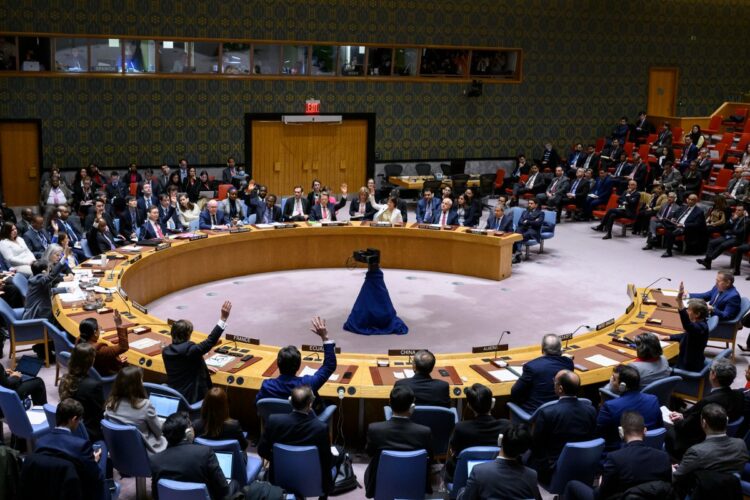
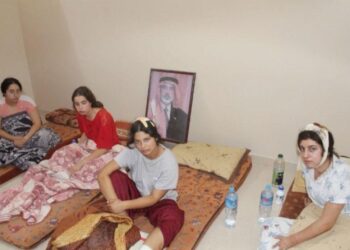
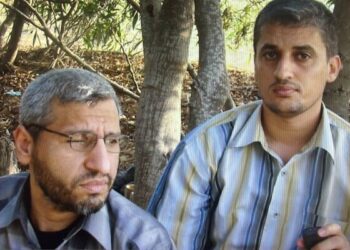


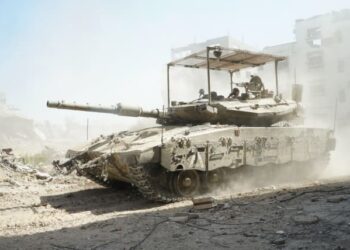
















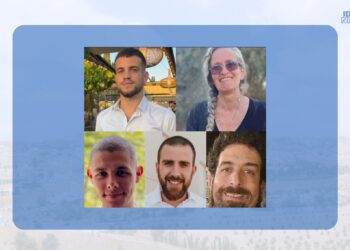

Discussion about this post